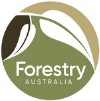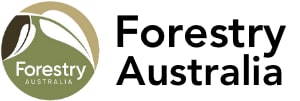
Vale: Associate Professor Kevin Tolhurst AM
11 December 1955 – 5 October 2023
By: Gary Morgan AM AFSM & Mike Leonard
At the time of his tragic passing, Dr Kevin Tolhurst AM was an Honorary Associate Professor in Fire Ecology and Management at the School Agriculture, Food and Ecosystem Sciences, University of Melbourne. Based in Creswick, north of Ballarat, Kevin’s death comes as a shock to friends and colleagues. His loss will be deeply felt by many in our community.
Kevin died suddenly, of a heart attack, following a presentation on fire management to the community in Mallacoota, in Eastern Victoria. Assisting fire-prone communities was a task Kevin enjoyed, and one which many fire prone communities increasingly valued.
For decades Kevin has been a pillar of the fire science community, both nationally and internationally; his knowledge and insights being highly regarded, as was his remarkable ability to explain complex science in accessible, comprehensible language.
Assisting residents, and authorities to better understand both the importance, and the dangers of fire, Kevin helped numerous communities to better appreciate the landscapes they chose to call home.
Relatively few of us in the ‘fire’ business are able to competently straddle both the design and implementation of complex research, and to then convey accessibly, the real-world application of the relevant findings. It was particularly in this sense that Kevin was held in such high esteem by his professional colleagues, and by the wider community.
Throughout the later decades of his career Kevin, and as well as assisting local and regional communities, his fire management knowledge and insights were in high demand during major bushfires, and by subsequent reviews, Inquiries, and Royal Commissions.
Kevin grew up in St Albans in Melbourne and was only six when his father died. During his childhood and teenage years, Kevin gained experience in rural life through staying and working on a Policeman neighbour’s family farm in East Trentham, and also on relatives’ farms at Rockbank and Toolern Vale. He learned to shoot, cart hay, drive a tractor, and other practical skills and developed a connection with the surrounding forests and the down-to-earth country people. No surprise perhaps, that Kevin moved, career-wise, into forest, fire and land management, initially through the study of forest science at the VSF, and then at Melbourne University. He always felt grounded to rural communities, so it is no wonder local communities related to Kevin in what he presented on fire management.
His subsequent career was to span almost half a century, and involved all aspects of fire management, from fire ecology, and fire behaviour and the role of fuels, to suppression and recovery.
Following his initial graduation in 1976 Kevin worked for the then Forests Commission Victoria, initially as a field forester. Kevin went on to complete a Doctor of Philosophy in 1996.
In the pursuit of knowledge, scientists are encouraged to question and challenge both themselves, and the work of others. And so, it is in the field of fire management. Whatever else, Kevin was never driven by ideology, rather by a desire to better understand the land and the influences impacting on forest ecosystems, and on human populations.
During his career Kevin authored more than 200 scientific papers. Almost uniquely among current researchers in eastern Australia Kevin also, each fire season, placed his scientific knowledge and insights at the disposal of Incident Management Teams, and Regional/State Co-ordination/Control Centres during fire emergencies. In south-eastern Australia in particular, Chief Fire Officers routinely sought Kevin’s advice and counsel, both during and after major fire events. For decades Kevin has had a major influence on the region’s fire management strategies.
Another key component of Kevin’s career was his determination to understand the longer-term effects of fire, and of the absence of fire, in the natural environment. Among many career highlights, Kevin led a 30+ year, multidisciplinary study into the effects of repeated low intensity fires in dry eucalypt forests in Central Victoria. This research has revolutionised how ecological values are incorporated into fire management, how fuels are assessed, and how bushfire risk is calculated.
This research led him, together with Derek Chong, to develop the PHOENIX RapidFire bushfire spread model. The computer program simulates bushfire behaviour, aiding real-time bushfire control operations by predicting how bushfires will move in real-time. The program has also proved invaluable in bushfire risk analysis, and for ecological and land-use planning. It is now used widely used across Australia.
These days PHOENIX RapidFire is well known by the media, and by emergency specialists more generally. Its current role focusses on three key areas. Firstly, as a communication tool to demonstrate to communities how their fire prevention actions could reduce the threat to their homes. Secondly, to identify the fire risk for forthcoming days, based upon weather forecasts and fuel conditions. And thirdly of course, during fire suppression in assisting in the strategic allocation of resources, and to warn at-risk communities.
A further key contribution of Kevin’s was the initiation, and the development of the ‘Overall Fuel Hazard’ assessment process that is now widely used across Australia. Part of this initiative saw the development of the ‘Wiltronics T-H Fine Fuel Moisture Meter’ which is now routinely used in prescribed fire operations. Kevin was also a pioneer in the use of fauna and flora life history attributes in developing sustainable fire regimes.
Beyond his Melbourne University based research Kevin, for decades, delivered lectured and led field studies for both under, and post-graduate students. Yet another role Kevin delighted in. Students invariably valued these interactions, and Kevin’s enthusiasm in helping them better appreciate the science of fire and ecosystem management. Again, his ability to convey complex science in an accessible manner was greatly appreciated by future ecologists, and land and fire managers, who went on to careers across Australia, and beyond.
In 2015, Kevin was made a Member of the Order of Australia and, in 2016, he was also honoured with the International Association of Wildland Fire’s ‘Ember Award’, for excellence in wildland fire science. Kevin was to be in Coolangatta later this month to receive the N. W. Jolly Medal from Forestry Australia. (This award is Forestry Australia’s highest and most prestigious honour for outstanding service to forestry in Australia. It recognises contributions from across the full scope of forestry and reflects the diversity of significant contributions being made across a wide range of disciplines and forest management activities).
In summary, Kevin Tolhurst’s career has spanned most aspects of forest and fire management in one of the most fire prone regions on Earth. He is widely valued for his contributions in research and development, published research, university teaching, professional training, and for his decades-long involvement in public forums, formal Inquiries, and for his assistance to the media. His efforts have inspired generations of park, forest and fire managers, planners, and field staff, to manage our precious natural areas sustainably. His legacy will be enduring, both nationally and internationally.
Kevin – forester/ecologist/environmentalist – will remain long in the memory not only of his family, but by all those he assisted to better understand the landscapes we call home.

